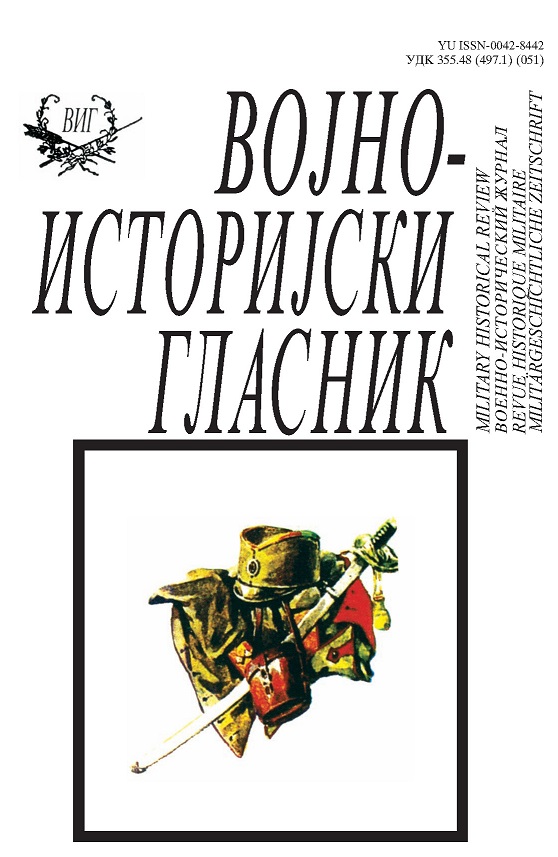Совјетска улога у школовању и припреми југословенског партизанског кадра до почетка Другог светског рата
The Soviet Union Role in Education and Training of the Yugoslav Partisan Staff Before the World War II
Author(s): Aleksej J. TimofejevSubject(s): Military history, Political history, International relations/trade, Military policy, History of Education, Interwar Period (1920 - 1939), History of Communism
Published by: Institut za strategijska istraživanja
Keywords: Soviet Union; USSR; education; training; Partisans; communist military schools; special camps; Soviet special services; Partisan movement; Yugoslavia;
Summary/Abstract: Yugoslav students were trained at the „communist military schools” in the USSR till the last school year of “Partisan Academy in the Soviet Union” in 1936/1937. The Yugoslav communist manual for subversive activities captured by the Yugoslav General Staff in 1937 had been written according to the soviet manuals. There are several memoirs on training at the “communist military schools” in the USSR left by Yugoslavs (M. Golubich, V. Begovich, J. Kopinich, R. Cholakovich, B. Maslarich, P. Kostich, etc).. Even Josip Broz Tito had been trained and later participated as a postgraduate assistance lecturer in the work of a “communist military school” in the USSR The Civil war in Spain had a great significance in the reinforcement of the Comintern partisan and revolutionary staff. K. Mrazovich, I. Goshnyak, B. Maslarich and several other Yugoslav communist leaders left their memories about the redeployment to Spain of Yugoslav partisan experts prepared in the USSR. Development of partisan and sabotage operations in Spain, directed by Soviet instructors, was described by the vast number of Yugoslav participants of the events. A large number of Soviet military-technical instructors (H.-U. Mamsurov, N. Patrahalcev, A. K. Sprogis, I. G. Starinov, S. A. Vaupshasov, N. I. Schelokov, G. Sirojezhkin, L. P. Vasiljevski, A. F. Zvjagin, A. M. Rabcevich, N. G. Kovalenko, V. Z. Korzh, N. A. Prokopec) trained the selected members of the International brigades in partisan tactics and sabotage. Jan Berzin, the chief of Soviet military intelligence from 1924 to 1935, was the supervisor. Among those students there was a relatively significant number of Yugoslavs. After the Civil War in Spain, most of the Yugoslav “Spaniards” was hold in a special camp in France. There are some indirect evidences that the return to Yugoslavia of those men trained for guerrilla operations was carried out with the help of Soviet special services. Two hundred and fifty Yugoslav “Spaniards” participated in the partisan war on the Western Balkan since 1941 to 1945. They became one of the most important pillars in organization of the partisan movement in Yugoslavia.
Journal: Vojnoistorijski glasnik
- Issue Year: 2009
- Issue No: 2
- Page Range: 55-77
- Page Count: 23
- Language: Serbian

